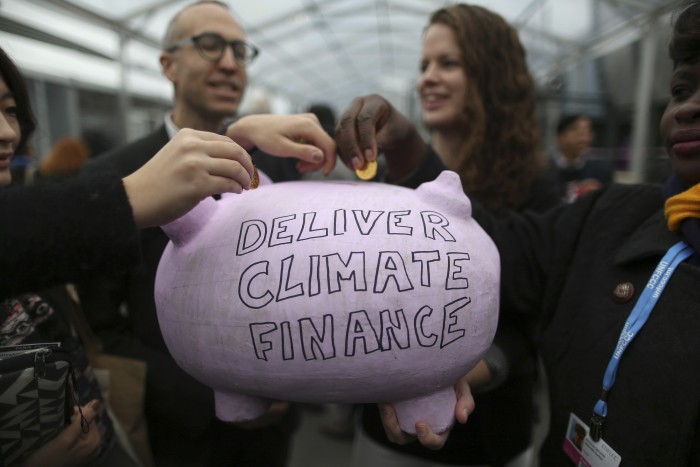
When ACT members around the world reach out to poor and vulnerable communities, there is no doubt about the need for support. There is urgent need to strengthen their resilience, and to adapt to the effects of climate change. To make that happen there is a need for funding.
In the UN, rich and poor countries have an ongoing argument about these funds. Rich countries claim they have provided their support, while developing countries ask where it is. A new report, commissioned by the ACT member DanChurchAid, as well as CARE Denmark and Oxfam IBIS, dig directly in to this conflict. The result is worth considering. Lack of transparency and weak accounting practices are found to be the core of the problem.
Lack of clear definitions, and agreement about how to account and report on climate finance leads to misunderstandings, and lack of action. To get the full picture we need to take a step back and look at developed countries’ commitments to support developing countries.
The promise about Official Development Aid…
There are many development needs. The global Sustainable Development Goals outline 17 areas where international development cooperation must be mobilized. Developed countries have an old commitment to allocate 0,7% of their GDP as aid to developing countries. It should be noted, that unfortunately very few countries have delivered on this commitment, but formally the agreement still persists.
…and a new commitment about climate finance
However, in the early 1990s scientists highlighted the need for climate action, and explained how climate change causes additional problems for development. Consequently, it was agreed that developed countries should mobilize additional support to help developing countries to tackle these additional challenges. Later a target, to annually mobilize $100 billion USD from 2020 and beyond, was adopted.
Finance confusion
The report mentioned above highlights four key problems with the current practice used by developed countries to mobilize climate finance.
First, there is no agreement about where the money should come from, or how it should be spent. This explains a big part of the confusion, as rich and poor countries have different perspectives on climate finance.
Second, there is a lack of transparency, and developing countries may in fact receive climate finance which they are not aware of. The lack of transparency is also linked to the method of assessing whether projects should be classified as climate finance or not. With limited information, assessments become weak, and as a result, big programs with limited elements related to climate change may be misreported as climate finance.
Third, the current reporting approach is, to a large extent, based on a bottom up approach where projects on the ground are assessed and reported to the UN. While this is good, to promote greening of concrete activities, it will not help donors to deliver on their commitment to support both adaptation and mitigation, or to increase climate finance in general. To achieve these commitments, there is also a need for top-down, political guidance. The report points at the lack of balance and the risk for increased imbalance when more private finance, which is more likely to support mitigation, becomes part of the reporting.
Finally, and this is where the broader debate about development becomes relevant, the report highlights that most climate finance also is reported as development aid. This means that developed countries deliver on two of their international commitments at the same time, when they channel support to developing countries. Overall, negotiations about climate finance will thus not necessarily increase the support, but only promote greening and increased resilience of existing development aid.
UN Climate Negotiations in Bonn this week have a focus on how to count and report climate finance. As ACT delegation, we hope that negotiators will take this debate seriously. We need agreement about how to assist developing countries, and we must always remember that money and funding must be translated into actual support to people, families and communities. It is their future which is at stake!
_____
 Mattias Söderberg, Senior advocacy advisor in DanChurchAid. Was elected co-chair for the ACT Alliance advisory group on climate change advocacy and was the acting head of the ACT delegations to UN climate talks from 2010 to 2015. Was co-chair of the ACT EU climate change working group from 2007 to 2009, and head of the ecumenical COP15 secretariat in 2009. Mattias is originally from Sweden, but live in Denmark.
Mattias Söderberg, Senior advocacy advisor in DanChurchAid. Was elected co-chair for the ACT Alliance advisory group on climate change advocacy and was the acting head of the ACT delegations to UN climate talks from 2010 to 2015. Was co-chair of the ACT EU climate change working group from 2007 to 2009, and head of the ecumenical COP15 secretariat in 2009. Mattias is originally from Sweden, but live in Denmark.
